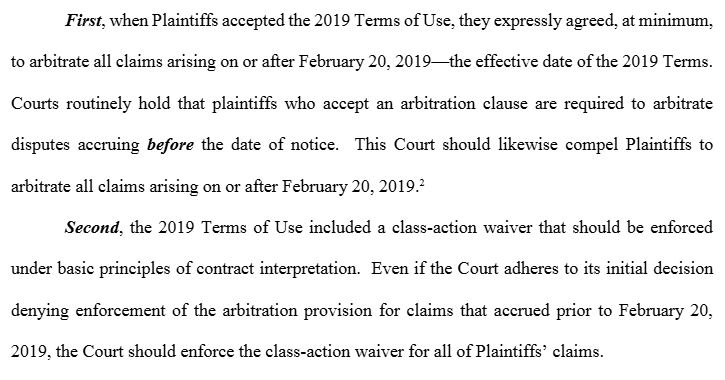Binance Seeks Arbitration in Securities Class Action: A Detailed Overview
Cryptocurrency exchange Binance is embroiled in a legal battle in the United States, seeking to compel all members of a class-action lawsuit to resolve their claims through arbitration. The lawsuit alleges that Binance sold unregistered securities. This request hinges on Binance’s argument that users, by agreeing to the platform’s terms of service, waived their right to participate in a class action and consented to individual arbitration.
Key Arguments Presented by Binance
In a May 16 filing to a New York federal court, Binance asserted that its terms of service, which users purportedly agreed to, contain both an arbitration clause and a clause prohibiting users from launching class actions against the exchange. The exchange argues that these clauses should be enforced, requiring all claims to be settled through arbitration.
Binance states that the court should require arbitration for claims that accrued after Feb. 20, 2019, emphasizing the enforceability of the class-action waiver introduced in the 2019 terms of use.

Previous Court Decisions
In March, Judge Andrew Carter denied Binance’s initial request to send all class action claims to arbitration for users who purchased tokens on the exchange between April 1, 2017, and Feb. 20, 2019. He partially denied the motion for users who bought tokens after 2019, pending a decision on the extent to which the arbitration clause applies. This ruling adds complexity to the ongoing legal proceedings.
Updates to Terms of Service
Binance maintains that it updated its terms of service in February 2019 to include the arbitration clause. The exchange also points to an earlier version of the terms, which stated that Binance could amend the terms as needed without individual notice. This argument aims to reinforce the validity and applicability of the arbitration agreement.
History of the Case
Judge Carter had previously sided with Binance and dismissed the suit in March 2022, accepting Binance’s argument that it isn’t subject to US securities laws due to the absence of a physical headquarters in the country. However, the US Court of Appeals for the Second Circuit overturned this decision in March 2024. The Supreme Court later declined to hear Binance’s appeal in January, allowing the class-action lawsuit to proceed.
Binance’s Escalating Legal Challenges
Binance’s legal challenges in the US have intensified since mid-2023, when the Securities and Exchange Commission (SEC) sued the company for selling unregistered securities. This matter was settled for $4.3 billion in November 2023.
Additionally, Binance faced a class action in Canada in April 2024, alleging violations of securities laws following its announcement to exit the country in May 2023. These legal entanglements highlight the regulatory scrutiny Binance faces in various jurisdictions.
Potential Outcomes and Implications
If Binance succeeds in compelling arbitration, it could significantly reduce the company’s exposure in the class-action lawsuit. Individual arbitration would likely be less costly and time-consuming than defending against a large class of plaintiffs.
However, if the court rejects Binance’s request, the class-action lawsuit will proceed, potentially leading to significant financial liabilities and reputational damage for the exchange.
Key Takeaways
- Binance is seeking arbitration for all members of a securities class-action lawsuit.
- The exchange argues that users agreed to arbitrate claims through its terms of service.
- Previous court decisions have both supported and opposed Binance’s position.
- Binance faces increasing legal challenges in the US and other countries.
- The outcome of this case could have significant implications for Binance’s legal and financial standing.